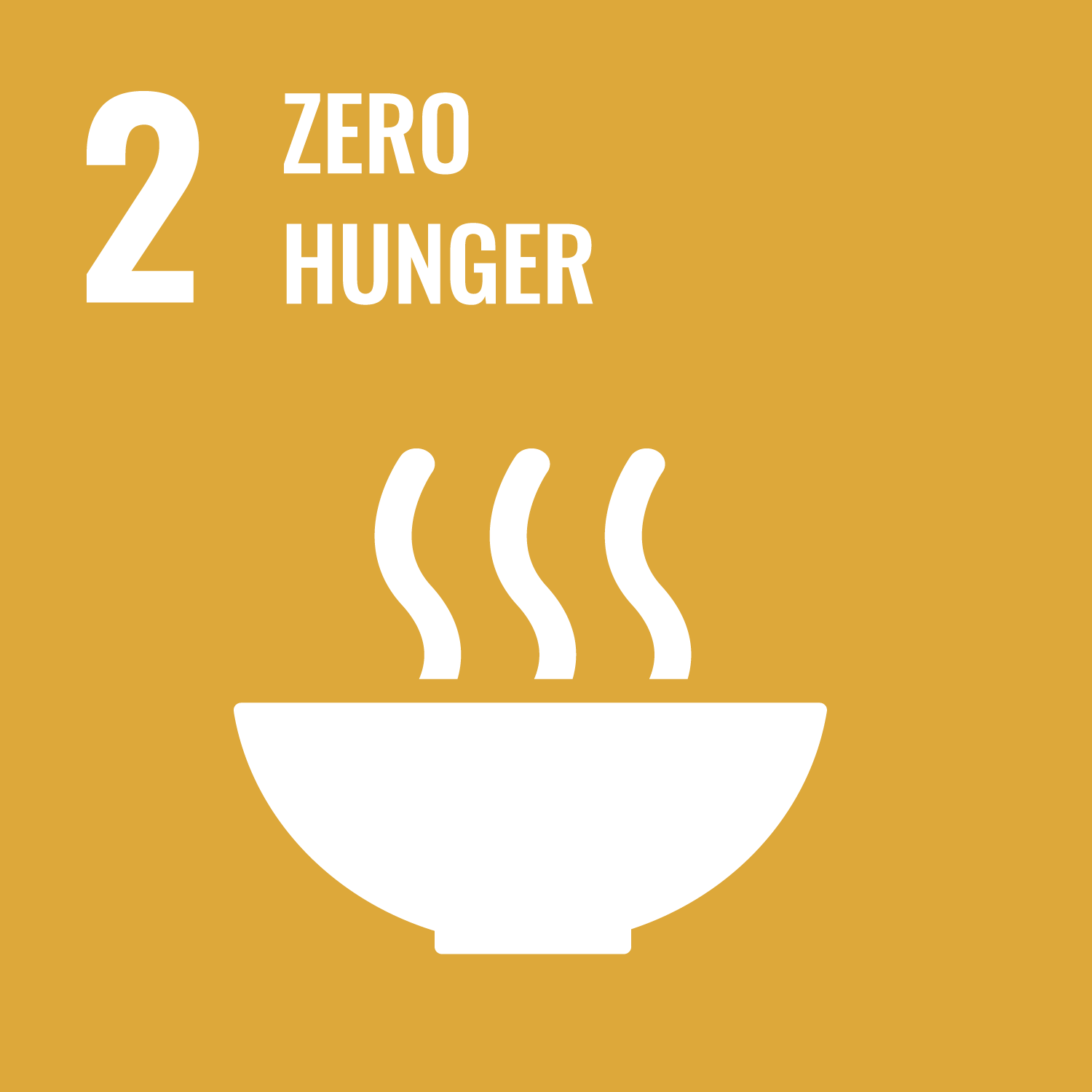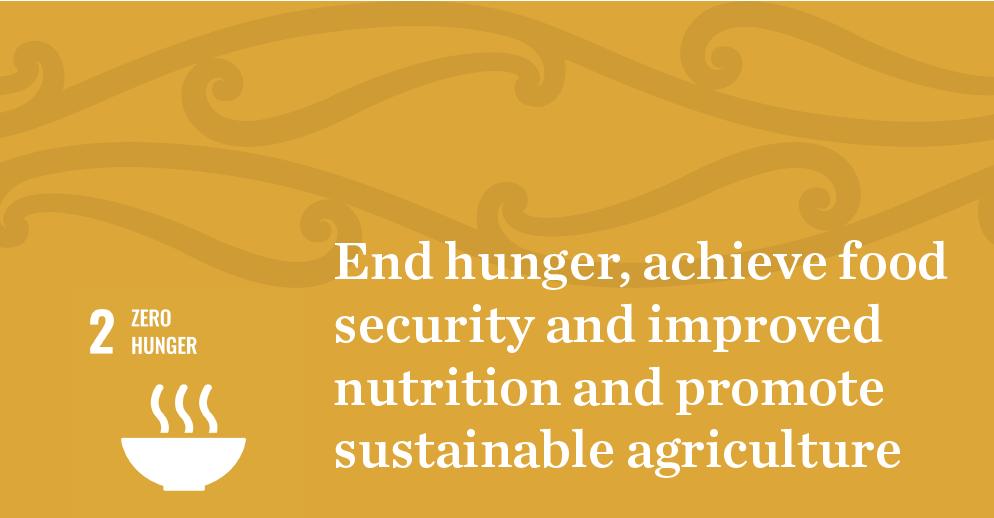Small-scale farming the future of global agriculture?
Small-scale farming could be part of the solution to climate change, according to some of the world’s top scientists. UC Biological Sciences Professor Jack Heinemann contributed to the Intergovernmental Panel on Climate Change (IPCC) Sixth Assessment Cycle (AR6) Report released in April. In Chapter 5 of the report, scientists were asked to review and assess relevant studies, focusing on strategies for adapting the food system to climate change. “An agroecological or similar approach, supported by breeding suited to farms that have more mixed cultivation rather than monocultures, and are dependent on fewer external high carbon inputs such as manufactured fertilisers, could replace our failing green revolution approaches,” Professor Heinemann says.
Our Community Garden is 20!
Te Ngaki o Waiutuutu/Waiutuutu Community Garden, on the UC’s Ilam campus, celebrated its 20th anniversary. For 20 years now the Community Garden has continued to provide a calm and beautiful space for students, staff and neighbours, as well as producing hundreds of kilos of veggies each year. Garden Coordinator Jam Kelly is an experienced organic gardener and provides a welcoming presence for volunteers. The garden is open to students, staff and neighbours, however most of the garden’s volunteers are students who are interested in environmental sustainability issues such as composting and soil health, are looking to swap an hour’s labour for some quality produce or want to connect with others. “Students get involved for different reasons. A lot of time they have an interest in growing, and it’s a relaxing, beautiful space,” says Kelly.
Palm kernel product may be harmful to cows
Each year, New Zealand imports about 2 million tonnes of palm kernel expeller (PKE), a by-product of palm-oil processing to feed dairy cows. Professors Sally Gaw and Brett Robinson, together with PhD student Hadee Thompson-Morrison discussed their research on the chemical composition of several batches of PKE imported into Aotearoa over two years. Their research showed PKE contains concentrations of some elements that may be harmful to cows, with concentrations of iron, magnesium and phosphorus that exceeded safe levels for dairy
cattle health. Some batches contained concentrations of aluminium, copper, sulphur and potassium within 90% of their safe limits, and may cause nutrient imbalances in dairy cows. The actual effects on dairy farms, soils and milk are yet unknown. There is an opportunity here to repurpose food waste and the nutrients it contains for New Zealand’s primary sector. This is the subject of ongoing research at UC.
Why you should start composting
UC environmental science students Kaitlyn and Jess Lamb shared their love of composting and practical tips at our Waiutuutu Community Garden as part of World Biodiversity Day. Both are studying first year Environmental Science; Kaitlyn is majoring in Environmental Contamination and Jess is majoring in Ecosystem Health & Biosecurity. “Composting is a big deal because we send far too much rubbish to the landfill,” Jess says. “About 30% of waste being sent there is organic waste, which means it could be composted!” “In the landfill, food scraps produce methane gas, which is in fact 23 times worse than carbon dioxide as a greenhouse gas,” Kaitlyn says. “Composting is a way in which we can minimize the waste we produce, therefore decreasing the impact we have on our one beautiful earth.” “We can all make compost,” Jess adds. “It is just a mixture of organic materials such as food scraps, brown leaves, paper, grass clippings... the list goes on! And from this, we can make dark, crumbly compost, which brings life back into the soil and feeds our plants.”
Food Initiatives on campus
We have a range of food initiatives for students and staff on-campus. Some examples of the on-campus food initiatives include:
- Community Gardens, which is our flagship food initiative growing sustainable food, provides students and staff an opportunity to belong to a community of people who care about eating local, organic food and learning how to grow it
- Research into mapping the UC Food System, which identifies flows of café food and highlights food security issues. Green space, which could be used to enhance aesthetics and increase food grown on campus, is also mapped
- Organic waste is collected across the whole of campus and sent to a local composting facility, which in turn sells the compost to local gardeners
Global contest to solve world hunger
Engineering student, Stephanie Post, was selected in the Team Universities of New Zealand to compete in a Global Case Competition in 2021. The focus of the competition was on the United Nations’ work to transform the way the world produces and consumes food. Stephanie says: “It is an honour to represent Aotearoa New Zealand, and it is exciting to work in an area that is so important to the world.” Teams are given 24 hours to prepare and present their proposal online to a panel of judges based in Norway. Chef de Mission Dr John Guthrie said it is an exciting opportunity for students to compete against the best universities in the world in an online environment. “This is a truly unique chance for the teams of students to provide input for and influence the efforts of the United Nations to address the food distribution and consumption problems,” he said.
Our Procurement
Strategic principles that guide the planning, sourcing and management of our procurement policy include: long term environmental initiatives that improve Canterbury’s ecological environment; contributing towards our carbon net neutral 2030 initiative; minimising waste; protecting human health and enhance environmental quality and safety; engaging with suppliers that promote socially responsible practices (diversity, acceptance, fairness and inclusiveness); products that are being sourced in a responsible and sustainable way; and supporting and fostering businesses that are owned and operated by Māori and Pacific communities and organisations.
Food safety breakthrough
Dairy factories could be the big winners from a new electromagnetic detection and imaging method aimed at boosting food safety systems. At our Electric Power Engineering Centre research on a Joule heating technique for logs also paved the way to improved imaging technology with wider applications. By passing electricity from one electrode through a piece of wood to a segmented electrode array, researchers were able to produce images showing the internal structures of wood, and now this same technology is being investigated for the food industry. “This is one half of the story on this new electromagnetic tomography method we now hope to develop for food safety and quality applications,” says Senior Research Engineer Dr Bill Heffernan. The goal is to develop this innovative new method so it can reliably determine the electrical conductivity distribution of food mixtures – such as milk - moving through a processing line. Food quality and safety is pivotal to New Zealand’s reputation as a trusted exporter of value-added, processed food products.
Our Community Gardens
UC’s community campus gardens form almost 30 in Christchurch. Established in 2002, Okeover Garden was named after the stream that meanders through our Ilam campus. It uses permaculture and organic growing methods. In 2018, Ngāi Tahu gifted the name Te Ngaki o Waiutuutu. On our Dovedale campus the garden was established in 2011 and is community-led. It offers private and shared allotments. Using UC land for gardening has many benefits. It allows staff and students to use their knowledge to influence campus design and policy, work together to grow fresh, organic produce, and promotes physical activity. Importantly, the gardens teach our students sustainable food gardening, and provides them with healthy and free produce.
Food Foraging Virtual Map
Our Sustainability Office and Geospatial Research Institute partnered to create a virtual story map of UC’s food foraging locations, highlighting the campus’s edible flora and community gardens. Everyone at UC can help themselves to various fruits available on campus, including peaches, berries, apricots, figs, feijoas, and much more.
New School Focuses on Food Sustainability
In November 2020 we announced the launch of a new postgraduate school focusing on food sustainability – Food Transitions 2050. Dedicated to supporting regional, national and international food systems, it is the result of a multilateral partnership between UC, Lincoln University, Plant & Food Research, Manaaki Whenua Landcare Research, and AgResearch. Its core purpose is to support the transition to more future-focused, sustainable food systems and preparation, and it will focus on solution-based outputs intended to complement the range of existing food innovation initiatives in Aotearoa. Foundational students are already applying to the School, attracted by the transdisciplinary and Matauranga Māori research (co-designed with mana whenua) spanning food and future landscapes, food for a carbon-zero future, food consumer transitions and food governance.
Study on Australasian food banks
A study of Australasian food banks on how they are coping with growing demand in the wake of the COVID-19 pandemic is being led by UC researchers. The aim is to find out more about the economic and social impacts of the virus to determine the best policies for addressing growing food security issues in times of crisis. “Since the COVID-19 pandemic, the demand for supplies from food banks has increased exponentially,” says lead researcher Dr Rosemarie Martin, who specialises in food, policy and well-being for UC’s Macmillan Brown Centre for Pacific Studies. “We hope the results of this research will be used by Government agencies to contribute to more equitable and effective food policy as a matter of urgency. There is a real need to do something to address inequalities around food security in New Zealand,” Dr Martin says.


